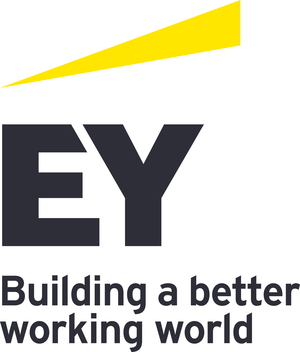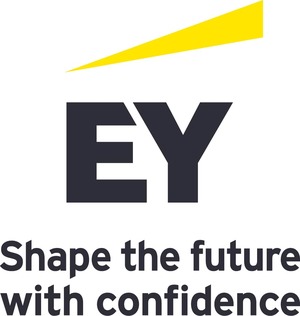- A vast majority of respondents (73%) expect an increase in prioritization of health equity over the next year.
- Close to two thirds (65%) of organizations reported health equity efforts having a positive return, and 83% report improved health outcomes. Health equity initiatives are starting to deliver value for health industry organizations and patients alike.
- Findings suggest more work is needed to achieve health equity goals. Stakeholders report health equity capability development and strategy activation are underway, though many organizations are not yet achieving health equity goals.
- Additionally, many report not being prepared to meet evolving regulatory guidance on data capabilities, gap closures and outcomes.
NEW YORK, March 21, 2024 /PRNewswire/ -- Ernst & Young LLP (EY US) announced today the release of its Center for Health Equity's second annual Health Equity Outlook Report, which polled 500 health equity leaders from provider, payer, life sciences, government and nonprofit and community organizations. The findings reveal how organizations across the health value chain are prioritizing investments and activities to realize health equity goals and overcome ongoing challenges.
Health equity remains a social, political and ethical priority, as virtually all surveyed executives (98%) believe prioritization will remain at current levels, if not increase, throughout 2024, and 92% of surveyed organizations indicate financial investment in health equity activities will increase over the next year.
Consistent with 2023's findings, not all organizations have the same health equity priorities or are at the same level of maturity. Health Equity Strategy Development was cited as a high priority for a third of organizations (34%) across the maturity continuum, representing a continuous improvement approach by some. Improving outcomes and narrowing disparities also remain top priorities across sectors. Specifically, and consistent with 2023 findings, Health care access and quality (44% of organizations ranking it in their top three health equity priorities) and Health outcomes disparity closure were frequently cited (31%).
"Continuing to prioritize health equity remains a key focus for stakeholders across health, life science, government, payer and nonprofit and community groups sectors. Many report positive financial and clinical impacts from their investments to date and are maturing in their approaches. With growing health equity focus in 2024, organizations are flexing to align with new incentives and develop capabilities to meet requirements," says Susan Garfield, EY Americas Chief Public Health Officer. "While examples of progress in the report are substantial, there is much more work to be done individually and collaboratively to address the full set of clinical and social needs that underserved populations face."
The EY report also found:
A Quest to Achieve Health Equity – The Tools at Play: Organizations report unlocking health equity through data-driven strategies and emerging technologies, but many admit to being in their early stages. There was a significant (50%) increase in those citing data, AI and technology as a priority and 88% of respondents are adopting basic health equity advancements through data analytics – with higher-maturity systems integrating more sophisticated data analytics.
The impact: The majority of organizations surveyed report positive impact on their organization's financial performance (65%) or specific health outcomes (83%) over the past year. Organizations that have been able to quantify one or both improvements (46%) have identified leadership buy-in and community engagement and trust as their top success factors. Relatedly, community connectivity is one of the most common value dimensions driving organizational health equity support across the ecosystem (52%).
The challenges: Competing priorities emerged as a top challenge among respondents (41%) this year. A lack of financial commitment was reported by a third of organizations (36%). Roughly a quarter (28%) point to the lack of an articulated business case for health equity as a barrier, with implications for financial investment into these initiatives.
Power of Partnerships: Health industry organizations reaffirmed the significant value of ecosystem partnerships and collaboration to achieve their health equity goals. Today, organizations report frequently collaborating with others within their stakeholder segment: 81% of government organizations partner with other government organizations, 73% of providers with other providers, 61% of nonprofits with other nonprofits, 57% of payers with other payers and 56% of life sciences organizations with other life sciences organizations, with cross-sector collaborations growing.
Garfield concluded, "Health equity will remain a paramount focus as health leaders cater to the evolving health ecosystem. While challenges persist in meeting internal goals and regulatory standards, advancing initiatives from strategy to delivery holds the promise of identifying and addressing existing disparities."
Sector Specific Findings:
- Provider organizations have maintained focus on equitable access and quality with an increasing percent of organizations honing in on this priority.
- Payer organizations indicate increased focus and readiness to address access, quality and coverage challenges, while also facing key needs to meet regulatory guidelines, improve data and analytics capabilities and build a health equity-centric workforce.
- Life sciences organizations are shifting focus toward data, artificial intelligence (AI) and technology as a priority and critical enabler to health equity strategy but report continuing need to develop capabilities to do so.
- Government organizations report being committed to driving integrated health equity strategies and collaborative approaches aimed at achieving sustainable outcomes.
- Nonprofit and Community organizations invest in a diverse set of health equity enablers, but consistently report challenges regarding sustainable funding commitments and data capabilities to execute their strategies.
"Payer and provider organizations are beginning to understand where and why health disparities exist. Developing strategies that outline clear priorities and creating data and analytics infrastructure to inform action will enable more meaningful lives for individuals and drive value for organizations," says Kelly Hawk, EY Principal, Health Transformation Consulting, Ernst & Young LLP. "The survey results illustrate that while we have work ahead to realize equitable care and outcomes, organizations are thinking more widely about these important social issues."
For more information and to access the full report, visit https://ey.com/en_us/health/2024-health-equity-outlook-report.
Survey Methodology
500 health equity leaders were surveyed across provider, payer, life sciences, government, and nonprofit and community organizations in January 2024, including C-suites, Vice Presidents, Directors or department leads, community liaisons or the equivalent of all aforementioned.
About EY
EY exists to build a better working world, helping create long-term value for clients, people and society and build trust in the capital markets. Enabled by data and technology, diverse EY teams in over 150 countries provide trust through assurance and help clients grow, transform and operate. Working across assurance, consulting, law, strategy, tax and transactions, EY teams ask better questions to find new answers for the complex issues facing our world today.
EY refers to the global organization, and may refer to one or more, of the member firms of Ernst & Young Global Limited, each of which is a separate legal entity. Ernst & Young Global Limited, a UK company limited by guarantee, does not provide services to clients. Information about how EY collects and uses personal data and a description of the rights individuals have under data protection legislation are available via ey.com/privacy. EY member firms do not practice law where prohibited by local laws. For more information about our organization, please visit ey.com.
Ernst & Young LLP is a client-serving member firm of Ernst & Young Global Limited operating in the US.
SOURCE EY

WANT YOUR COMPANY'S NEWS FEATURED ON PRNEWSWIRE.COM?
Newsrooms &
Influencers
Digital Media
Outlets
Journalists
Opted In





Share this article